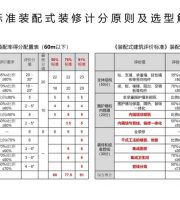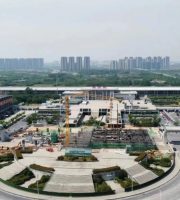Chatpong Chuenrudeemol.

Chatpong “Chat” Chuenrudeemol was born in Bangkok, Thailand in 1972 and moved to the United States at the age of six. I obtained a Bachelor’s degree in Architecture from the University of California, Berkeley in 1994 and a Master’s degree in Architecture from Harvard University in 2000. After completing his studies in the United States, Chat returned to his birthplace Bangkok and founded the CHAT Architecture Firm. He combined research and design practices to generate innovative multi-scale architecture, inspiring communities through design strategies that reinterpret authentic local conditions. In 2015, he founded CHAT Laboratory, a research-oriented think tank aimed at discovering new local “street” types in Thailand, affectionately known as “Bangkok Bastards”..

In 2023, the Angsila oyster scaffold designed by CHAT won multiple global sustainable building design awards. Including the Seoul Sustainable Life Design Award, Taiwan Golden Dot Design Award, Australia Excellent Design Award, and INDE AWARD’s “Annual Influence” Award (Asia Pacific Region) and the “International Architecture Beauty” Award at the 2023 World Architecture Festival..
Video by W Workshop.
The Angsila Oyster Scaffolding is located near the coast of Angsila Village, a historic village in Chumphuri, Thailand. The Angsila community used to be a prosperous small-scale fishing town, but over the past few decades, due to various factors, they have been striving to maintain their fishing lifestyle – at the ecological level, unfiltered waste from nearby factories and new suburbs is discharged into rivers and canals, directly flowing into Angsila Bay. The resulting decline in water quality, quantity of seafood, and profitability of seafood farming has led to the abandonment of traditional fishing lifestyles. Especially for the younger generation who leave their hometowns and seek higher profit factories, offices, or retail jobs near Bangkok. The Angsila Oyster Scaffolding Project aims to revitalize Angsila’s struggling fishing/seafood industry by creating a new prototype of oyster ecotourism infrastructure..
The design of the project draws on and “renovates” the widely deployed traditional bamboo scaffolding used for oyster farming. The project consists of two parts. The permanent bottom is a fully functional oyster farm, while the temporary top is a detachable red shed bamboo platform for oyster farming, oyster preparation, and oyster demonstration tasting..
During use, local fishermen bring a small group of tourists from Angsila to a scaffolding platform where they can manually pick oysters salvaged from the seabed and cook them fresh… enjoying a dining experience from the sea to the dining table in an extraordinary coastal environment. This new oyster tasting experience allows Angsila fishermen to directly tell tourists about their fishing history and oyster farming traditions in a new interactive way. The shellfish raised on the scaffolding also ensures the freshness of seafood that tourists can enjoy, and provides an opportunity for Angsila fishermen to protect An.





